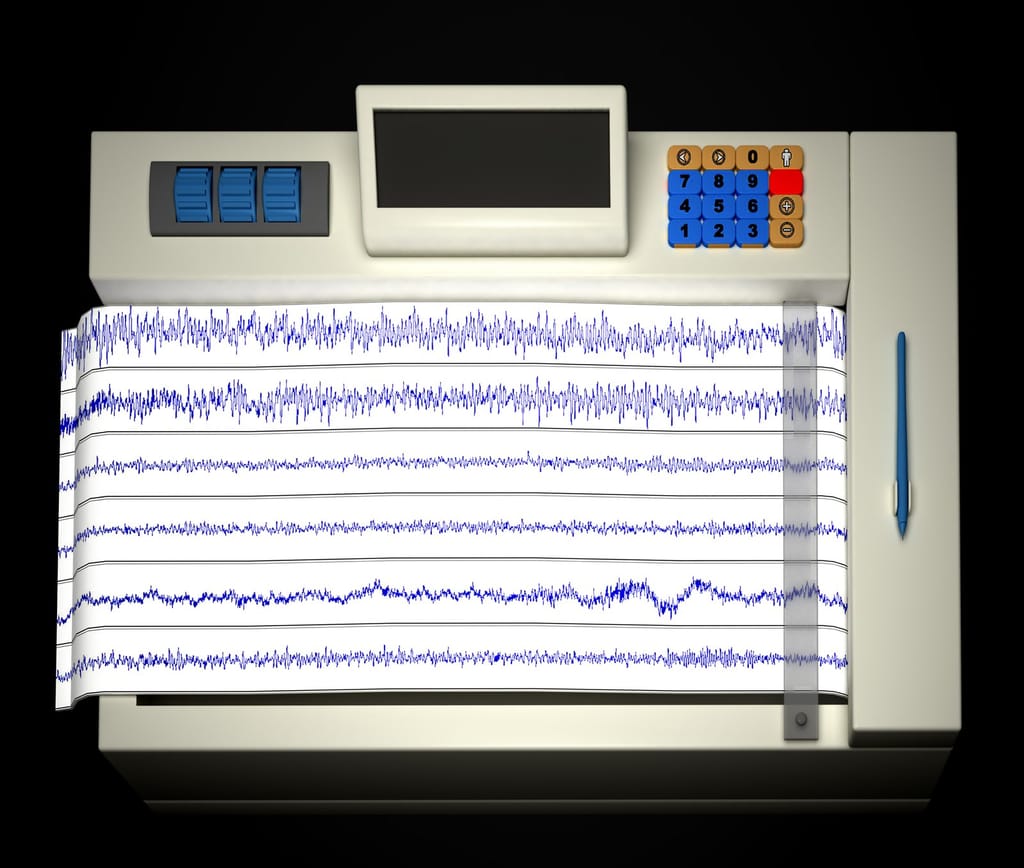What is REM sleep?
How much do you really know about REM (Rapid Eye Movement) sleep? Chances are, perhaps not as much as you should. REM sleep is one of the most important stages of sleep, and we often underestimate its importance.
It is the stage of sleep during which we have our most vivid dreams. It’s also the stage of sleep during which our brains are most active. For this reason, we usually refer to this stage of sleep as "active sleep." During this stage, our eyes dart from side to side, hence the term "rapid eye movement" sleep. This is because our brains are so engaged during this stage that they are actually working harder than when we’re awake.
Scientists believe that REM sleep is important for learning and memory, as well as for emotional stability and creative thinking. The stage usually begins about 90 minutes after we fall asleep, and it usually lasts for about 20 minutes. Afterward, we normally go back into a deep sleep for a few minutes before entering another period of the same. This pattern of rapid eye movement and profound sleep repeats throughout the night.
Physiology and psychology of REM sleep
One of the most important aspects of sleep is the various stages it goes through. Rapid Eye Movement sleep is one of the most important stages of sleep and handles a variety of physiological and psychological benefits. It is during this stage of sleep that most dreaming occurs. The first period of REM sleep usually occurs about 70-90 minutes after falling asleep. It increases in duration as the night goes on, and it accounts for about 25% of total sleep time.
Interestingly, humans (and other mammals) do not experience these episodes consecutively—rather, people will experience several periods during a single night.
The physiological benefits of REM sleep are extensive. During this stage, the body’s muscles are fully relaxed, and the heart rate and breathing slow down. This allows the body to recover and heal itself, and research has demonstrated that people who get sufficient sleep are less inclined to suffer from illness.
REM sleep is also necessary for cognitive function. It is during these occurrences that the brain absorbs memories and processes information learned during the day. It also plays a role in emotional stability, and people who don’t get adequate sleep are more likely to experience mood fluctuations and depression.
The psychological benefits of REM sleep are also important. Most dreaming occurs during this stage, and we consider dreaming to be the brain’s way of processing information and experiences from the preceding day. Dreaming can also help to relieve emotional stress and anxiety.
Despite the many benefits of REM sleep, there are some drawbacks to consider. For example, anxiety, stress, and physical discomfort can disturb sleep. People who are in the early stages of addiction may experience an increase in this sleep stage as their brain tries to compensate for the deficiency in dopamine production.
Overall, REM sleep is an important stage of sleep that plays a vital role in both the physiological and psychological health of an individual. Getting enough sleep is essential for overall health and well-being.

Cognitive Function
Studies have shown that REM sleep is important for processing and organizing information, consolidating memories, and problem-solving. During REM sleep, the brain is thought to be actively synthesizing and reorganizing information. This enables people to better process and remember information, as well as improve their problem-solving skills.
REM sleep has also been linked to improved creativity. Research has shown that people who sleep in the REM stage are able to come up with more creative solutions to problems than those who do not.
Additionally, REM sleep has been associated with improved performance on cognitive tasks that require abstract thinking, such as the Wisconsin Card Sorting Test. Studies suggest that the amount and timing of REM sleep are both important for cognitive functioning. People who get too little REM sleep are more likely to experience deficits in cognitive function. Conversely, people who get too much REM sleep may also experience deficits in cognitive function. This suggests that a balanced amount of REM sleep is important for optimal cognitive functioning.
Long-term memory consolidation
The role of Rapid Eye Movement (REM) sleep in long-term memory consolidation is an area of ongoing research. Sleep is essential for the formation and consolidation of memories, and it specifically has been found to be important for the consolidation of some types of memories.
The concept of memory consolidation is based on the idea that, as memories are formed, they must be stabilized over time. This process involves the transfer of information from short-term storage to more permanent long-term storage. Sleep has been found to play a critical role in this process, with research suggesting that sleep helps to strengthen and consolidate memories.
REM sleep has been found to be important for the consolidation of certain types of memories, such as declarative memories, which involve facts and information that can be consciously recalled. Studies have shown that it is associated with improved memory performance on declarative memory tasks, suggesting that it plays a role in the consolidation of these types of memories.
REM sleep has also been found to be important for the consolidation of procedural memories, which involve skills and behaviors that are learned over time. Studies have shown that it is associated with improved performance on procedural memory tasks, suggesting that it plays a role in the consolidation of these types of memories.

REM sleep and mental health
The relationship between Rapid Eye Movement sleep and mental health has been the subject of much research and discussion in recent years. While the exact mechanism by which REM sleep influences mental health is not yet fully understood, there is evidence to suggest that it plays a significant role.
REM sleep is the stage of sleep in which the most vivid dreams occur. During this stage, the brain is highly active and the eyes move rapidly from side to side. It is believed that this sleep is essential for memory consolidation and emotional regulation.
Studies have also found that individuals who experience inadequate REM sleep are more likely to experience negative mental health outcomes such as depression, anxiety, and mood instability. In addition to its role in memory consolidation and emotional regulation, it is thought to be involved in creative thinking and problem solving.
Studies have also found that those who experience REM sleep deprivation are more likely to struggle with mental tasks and have difficulty focusing. Furthermore, recent research has suggested that it may be beneficial for mental health by helping to regulate stress hormones, reduce inflammation, and improve overall well-being.
Common misconceptions
The Deepest Stage of Sleep: While REM sleep is a deep sleep stage, it is not the deepest sleep stage. In fact, it is the lightest stage of sleep and it is characterized by increased brain activity.
Every 90 Minutes: It is true that REM sleep typically occurs every 90 minutes, but this is not always the case. It can occur more frequently for some people, and for others it may be less frequent.
The Same For Everyone: While most people experience the same stages of sleep, each person’s experience is unique. Factors like age, health, and environment can affect the length and frequency of REM sleep.
Responsible For All Dreams: While it is true that most dreams occur during REM sleep, there are also other stages of sleep where dreams can occur.
Not Important: REM sleep is actually very important for mental and physical health. It helps to restore the body and mind, and it helps to improve memory, mood, and learning.
Conclusion
Rapid eye movement sleep is one of the five stages of sleep that humans undergo. Physiological and behavioral features characterize this stage of sleep, including actual rapid eye movements, altered muscle tone, and a decreased heart rate. The function of the rapid eye movement sleep is not entirely clear, but we believe it to be important for learning and memory, and for maintaining the health of the brain.
Reference
- Sleep Phases and Stages. (2022, March 24). NHLBI, NIH. https://www.nhlbi.nih.gov/health/sleep/stages-of-sleep
- Leavitt, M. J. S. (2019, October 10). How Much Deep, Light, and REM Sleep Do You Need? Healthline. https://www.healthline.com/health/how-much-deep-sleep-do-you-need
- Summer, J. (2022, April 26). What is REM Sleep and How Much Do You Need? Sleep Foundation. https://www.sleepfoundation.org/stages-of-sleep/rem-sleep